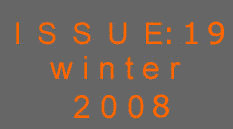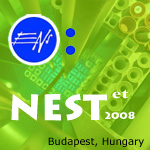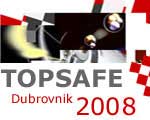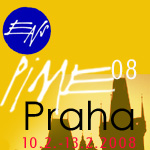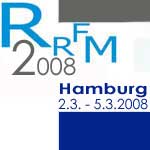ENS NEWS N° 19 – Editorial: Selling
science, securing the future
Now that the traditional end-of-year festivities
are over it is time to look forward - batteries recharged - to
what promises to be a very important year for the nuclear community.
As political events have unfolded across Europe the crucial contribution
that nuclear energy makes to reducing climate change and ensuring
affordable and secure energy supplies has been thrust more and
more into the spotlight. Increased acceptance of the key role
that nuclear energy has to play in Europe’s energy mix
has fuelled a sense of heightened optimism, confidence and renewed
ambition in the nuclear industry. After years of stagnation the
nuclear industry, buoyed by the changing political landscape,
is now much more bullish. For the nuclear science community this
brings with it increased responsibility to deliver the goods,
a greater pressure to perform, even though it’s debatable
whether the resources allocated to research have mirrored the
increased expectations. Nobody disputes the fact that without
adequately funded state-of-the-art science and research the nuclear
revival will not be sustained and rampant energy demand will
not be met.
The revival has put certain problems that have long preoccupied
the nuclear industry into sharper focus, making their resolution
all the more urgent. One of these is the question of meeting
increased demand for nuclear research with adequate supplies
of young talented scientists to carry it out. It’s a simple
supply and demand equation. As a result of nuclear energy’s
years in the comparative wilderness in some countries the enduring
perception among many young people today is that studying sciences
or choosing a career in research do not represent a smart option.
Such a perception is hard to change. Could a lack of young blood
to carry things forward prove to be a serious barrier to progress
at such an auspicious time for the nuclear industry?
Could it even encourage the revival to stall? Interestingly,
some of nuclear energy’s most ardent opponents have now
switched from denying vociferously that the nuclear revival actually
exists to predicting that there are not enough young talented
scientists to sustain it – an implicit admission that it
does exist after all. On this occasion, however, the anti-nuclear
brigade may not be entirely wrong. One thing is for sure, without
the constant replenishment of the talent pool no industry can
survive long term. But to simply let market forces satisfy the
equation would be a mistake. Instead the industry must have the
right framework for providing training, development and retraining
for new recriuts.
But, as usual, nothing is ever quite as black and white as it
seems. ENS NEWS readers certainly don’t need me to tell
them that there are a lot of talented researchers out there,
ready to take up the baton and push back the boundaries of the
possible. The whole point is that we might know it, but does
the wider public? Ignorance of the facts nurtures common misconceptions
about science and research. It’s up to us, therefore, to
communicate the facts more effectively and show how a career
in nuclear science and research can offer even the most ambitious
of potential young scientists an opportunity to have a fulfilling
and meaningful career.
Recent political developments at EU level have reinforced the
belief that more must be done now to promote nuclear research.
It is an essential ingredient in the Community meeting its future
energy and environmental goals, while at the same time safeguarding
its leadership in the field of science and technology. The European
Commission’s recently launched Sustainable Nuclear Energy
Technology (SNETP), in addition to focusing on a wide range of
nuclear research programmes, stresses that in order for Europe
to maintain its global technological leadership “education
and training in nuclear science and engineering must be strengthened.”
From an industry perspective utilities have invested a lot of
time and effort into identifying and attracting talented and
committed young scientists to drive the nuclear revival forward.
National institutes and private research centres play a vital
role too, offering research opportunities for many young scientists
from Europe and beyond. There are a wide range of training courses,
work placements and continuous education programmes on offer
for trainees and employees. In some cases professional recruitment
agencies work in partnership with universities and centres of
excellence to identify and recruit the best young graduates for
jobs in both the public and private sectors. The Young Generation
Nuclear network is also very active. It is close to the pulse
of young people, contacting students, presenting opportunities,
sharing its experiences and generally promoting a career in nuclear
research.
Fortunately, the signs are there that the trend is slowly being
reversed, as governments realise that support for studying the
sciences - from primary school to university level - needs to
move up a gear. In some countries, the number of students opting
to study science subjects at A-level, graduate and post graduate
level is slowly increasing after years of decline. Governments
are now giving special support and offering incentives to those
considering a career in the sciences. Better late than never,
I guess. And yet, in spite of these efforts, a career in marketing,
finance, communications or IT is still largely perceived by those
surveying the job market as being much more “cool” and
lucrative than a career in research. Of course, emerging technologies
and evolving market trends have helped set the agenda and greater
financial rewards have followed. So, there is a limit to what
we can do in the short term to influence wider social and business
trends. However, the science community must also accept its share
of the blame because it has failed to communicate adequately
the real value and rewards that a career in science can bring.
Perhaps we have failed to explain forcefully enough to the public
the connection between science and everyday life; to do our bit
to counter the stereotypical view of a scientist as a bit of
an anorak, living in a parallel universe far removed from the
realities of life. However inaccurate and unfair some of the
stereotypical views might be, we are partly to blame for encouraging
their existence. Perhaps we should do more to improve our image.
Good communications are vitally important.
The upcoming ENS international conference PIME 2008 (taking
place in Prague, from 10-12 February) will, significantly, focus
on the needs of nuclear communicators. It will feature a workshop
devoted to the key subject of education and training. The emphasis
will be, precisely, on communicating the benefits of a career
in nuclear science and on how to better attract and retain the
best young scientists through specialist education and training.
It will feature a speaker from the UK’s National Skills
Academy for Nuclear (NSAN). At a time when the UK has just launched
an ambitious new build programme, the work of organisations like
NSAN is all the more significant. Of course, similar training “academies” and
programmes exist in other countries too. But perhaps we ought
do more to “sell” science ourselves, rather than
rely too heavily upon others. Communicating effectively is a
science too – one that we should, perhaps, learn to master
more. Even if you are not personally involved in the communications
business you have much to gain from improved communications about
what scientists really strive for, and what their achievements
and aspirations are.
ENS NEWS has reported on this important issue before and will
continue to do so. This time I would like to enlist your help.
I invite you to share your experiences and views on the subject
with ENS NEWS readers so that a real insight into what you are
doing to train and retain the scientists of today and tomorrow
can be shared with others. We all have a view on the subject.
So, let me know what you think and illustrate what your organisation
is doing. The ENS web site is also a vehicle for communicating
to a wider audience our views about what the nuclear science
community is doing today and planning for tomorrow. It can be
a shop window for those who are considering a life dedicated
to science. We owe it to those who will come after us to present
the facts in a clear and persuasive way.
The first ENS NEWS of 2008 kicks off
with an editorial on a subject of fundamental importance
to all readers – the recruiting and training the next generation
of qualified, talented and committed nuclear scientists. This
is followed by a word of welcome to our recently-elected President,
David Bonser. The new man at the helm of ENS, in his first ever
Word from the President feature, outlines his vision of the Society’s
future, its priorities and the main challenges that it faces.
The events section gives important information about what is
an extremely full agenda of ENS conferences. It covers PIME,
RRFM, NESTet and TOPSAFE. As we “go to press” some
of these conferences are getting very close (especially PIME
2008, which takes place in Prague, from 10-13 February) and those
of you who intend going but haven’t yet registered will
need to get your skates on!
Among the subjects covered in the Member Societies and Corporate
Members section are the latest experiments carried out in Sweden
into the dry-out profile of BWR fuel elements, a personal appraisal
of the future of nuclear energy by our Vice President, Frank
Deconinck, a novel slant on the outcomes of the recent Bali COP
talks and a summary of events at the Bulgarian Nuclear Society’s
annual conference.
The traditional Young Generation (YGN) section feature stories
about how to improve nuclear’s image by cross-branding
with successful brands and “Bulgaria’s nuclear November.”
ENS NEWS N° 19 features an especially detailed review of
all the significant political developments that dominated so
many front pages during 2007, and which could have a profound
effect upon how future research efforts are funded and focused.
Without doubt one of the most significant of these developments
was the much-anticipated conformation of the UK government’s
decision to launch a new build programme – a groundbreaking
announcement that will give more impetus to the nuclear revival
in Europe.
As usual, we include a number of news reports from NucNet, including
one on the situation in the UK and on the World Economic Forum,
in Davos.
Make sure you read all the latest news about the ENS events
programme and make sure that your organisation participates in
the debates.
In more ways than one, 2008 seems likely to be a momentous year.
Follow the issues that will define it with ENS NEWS.
Enjoy N° 19!
|

Mark O’Donovan
Editor-in-Chief
|
|
|

